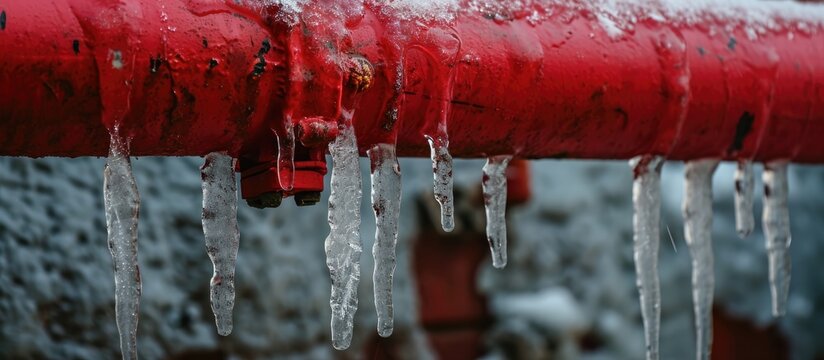Tips to Protect Pipes from Freezing Issues: Important Guidance
Tips to Protect Pipes from Freezing Issues: Important Guidance
Blog Article
The article following next about Prevent Frozen Pipes is immensely engaging. You should investigate it.

Winter can wreak havoc on your plumbing, specifically by freezing pipes. Below's how to stop it from happening and what to do if it does.
Introduction
As temperatures decline, the danger of icy pipes increases, potentially leading to pricey repair work and water damages. Recognizing just how to prevent frozen pipelines is crucial for house owners in chilly climates.
Avoidance Tips
Protecting vulnerable pipes
Wrap pipes in insulation sleeves or use warmth tape to secure them from freezing temperatures. Focus on pipelines in unheated or external areas of the home.
Heating strategies
Keep indoor spaces appropriately heated up, especially areas with plumbing. Open up cabinet doors to enable warm air to distribute around pipelines under sinks.
How to identify frozen pipelines
Search for lowered water flow from faucets, unusual odors or noises from pipelines, and visible frost on revealed pipes.
Long-Term Solutions
Architectural adjustments
Take into consideration rerouting pipes away from exterior wall surfaces or unheated locations. Add extra insulation to attics, basements, and crawl spaces.
Updating insulation
Purchase high-grade insulation for pipes, attics, and wall surfaces. Appropriate insulation aids maintain consistent temperature levels and reduces the danger of icy pipes.
Protecting Outside Pipes
Garden hoses and outdoor faucets
Detach and drain pipes yard tubes before winter season. Install frost-proof spigots or cover exterior faucets with insulated caps.
Understanding Frozen Pipes
What causes pipes to freeze?
Pipes freeze when revealed to temperatures below 32 ° F (0 ° C) for prolonged durations. As water inside the pipelines freezes, it increases, taxing the pipeline walls and possibly triggering them to burst.
Risks and damages
Frozen pipes can cause water system disturbances, residential or commercial property damage, and costly repair services. Ruptured pipes can flooding homes and cause substantial architectural damages.
Signs of Frozen Pipeline
Determining frozen pipes early can avoid them from bursting.
What to Do If Your Pipes Freeze
Immediate actions to take
If you presume icy pipelines, maintain faucets open up to ease stress as the ice thaws. Utilize a hairdryer or towels taken in warm water to thaw pipes gradually.
Verdict
Stopping icy pipelines needs aggressive procedures and quick feedbacks. By understanding the reasons, signs, and safety nets, homeowners can shield their pipes during winter.
Helpful Tips to Prevent Frozen Pipes this Winter
UNDERSTANDING THE BASICS: WHY PIPES FREEZE AND WHY IT’S A PROBLEM
Water freezing inside pipes is common during the winter months, but understanding why pipes freeze, and the potential problems it can cause is crucial in preventing such incidents. This section will delve into the basics of why pipes freeze and the associated problems that may arise.
THE SCIENCE BEHIND FROZEN PIPES
When water reaches freezing temperatures, it undergoes a physical transformation and solidifies into ice. This expansion of water as it freezes is the primary reason pipes can burst. As the water inside the pipe freezes, it expands, creating immense pressure on the walls. If the pressure becomes too great, the pipe can crack or rupture, leading to leaks and water damage.
FACTORS THAT CONTRIBUTE TO PIPE FREEZING
Low Temperatures: Extremely cold weather, especially below freezing, increases the risk of pipes freezing. Uninsulated or Poorly Insulated Pipes: Pipes located in unheated areas, such as basements, crawl spaces, or attics, are more prone to freezing. Insufficient insulation or lack of insulation altogether exacerbates the problem. Exterior Wall Exposure: Pipes running along exterior walls are susceptible to freezing as they encounter colder temperatures outside. Lack of Heating or Temperature Regulation: Inadequate heating or inconsistent temperature control in your home can contribute to frozen pipes. PROBLEMS CAUSED BY FROZEN PIPES
- Pipe Bursting: As mentioned earlier, the expansion of water as it freezes can cause pipes to burst, resulting in significant water damage.
- Water Damage: When pipes burst, it can lead to flooding and water damage to your property, including walls, ceilings, flooring, and personal belongings.
- Structural Damage: Prolonged exposure to water from burst pipes can compromise the structural integrity of your home, leading to costly repairs.
- Mold and Mildew Growth: Excess moisture from water damage can create a favorable environment for mold and mildew growth, posing health risks to occupants.
- Disrupted Water Supply: Frozen pipes can also result in a complete or partial loss of water supply until the issue is resolved.
WHY CERTAIN PIPES ARE MORE PRONE TO FREEZING
- Location: Pipes located in unheated or poorly insulated areas, such as basements, crawl spaces, attics, or exterior walls, are at higher risk of freezing.
- Exterior Pipes: Outdoor pipes, such as those used for irrigation or exposed plumbing, are particularly vulnerable to freezing as they are directly exposed to the elements.
- Supply Lines: Pipes that carry water from the main water supply into your home, including the main water line, are critical to protect as freezing in these lines can affect your entire plumbing system.
- Underground Pipes: Pipes buried underground, such as those connected to sprinkler systems or outdoor faucets, can be susceptible to freezing if not properly insulated.
https://busybusy.com/blog/helpful-tips-to-prevent-frozen-pipes-this-winter/

Do you appreciate more info about How To Avoid Freezing Pipes? Make feedback down below. We would be happy to find out your feelings about this blog posting. In hopes that you visit us again in the future. Liked our post? Please quickly share it. Let others locate it. Thank you for your time spent reading it.
Here Report this page